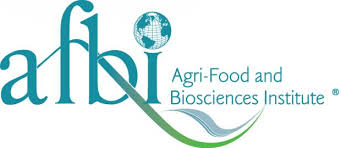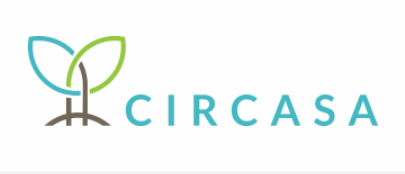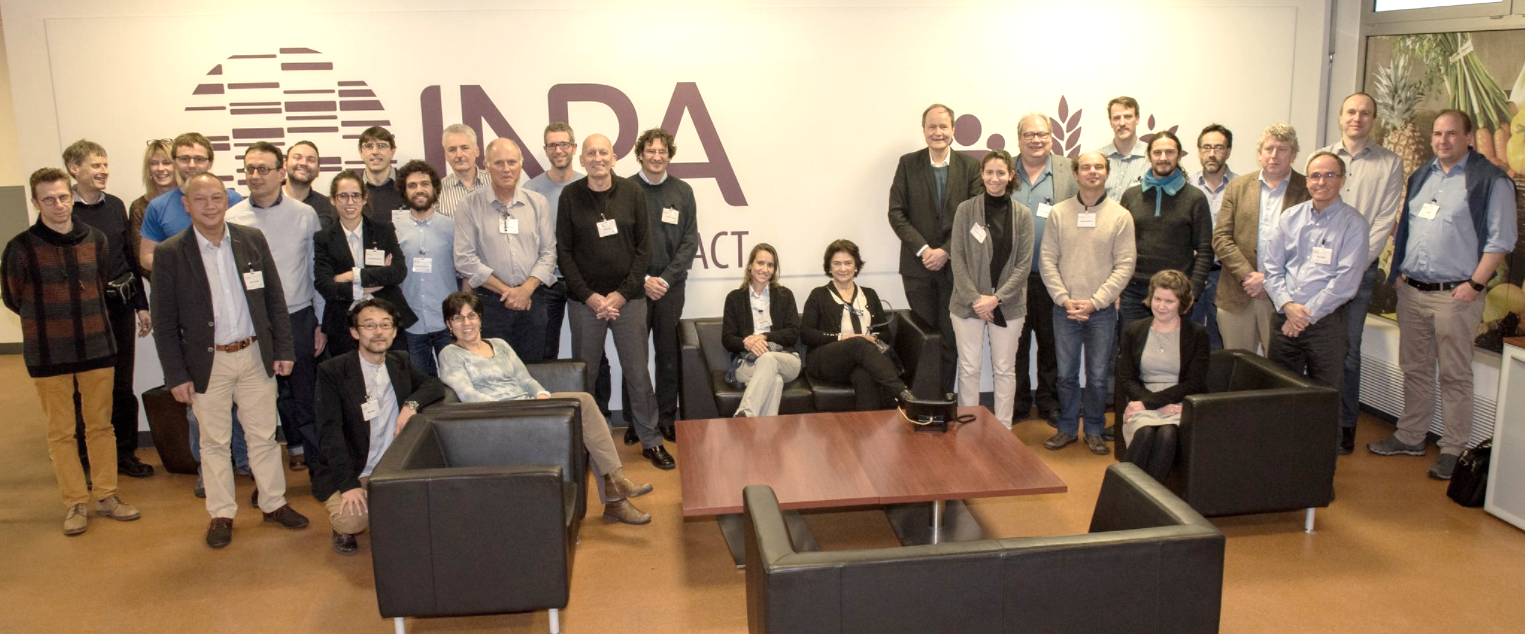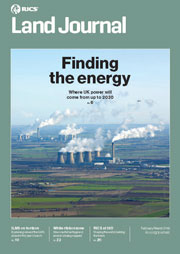Scientists in the LRG’s Rumen Microbial Genomics Network have had their work to develop a global reference set of genome sequences of rumen microbes published in Nature Biotechnology.
The project, called the Hungate1000*, was led by New Zealand scientists Dr Bill Kelly and Dr Sinead Leahy and brought together nearly 60 scientists from 14 research organisations across nine countries**. This global collaboration has generated a reference catalogue of 501 rumen microbial genomes—before Hungate1000, just 15 rumen microbial genomes were available to the scientific community.
Dr Kelly says the project gives a new understanding of what exactly is taking place inside a rumen.
“Hungate1000 means we can now start to reveal the intricacies of how the rumen microbial community functions, and provide a roadmap for where to take the science next,” he says. “This data can be translated into interventions that are globally useful, such as identifying targets for vaccines and inhibitors to reduce methane emissions and improve productivity, among other things.”
Dr Leahy says the project represents a major scientific advancement in the field of rumen microbiology, an area of science that up until recently had largely been unexplored.
“These microbes in the stomachs of ruminants are crucially important—they convert grass and other dietary components into smaller compounds that the sheep or cow uses to make meat and milk,” she says. “The data we’ve made available with Hungate1000 will underpin the development of technologies to target these microbes and aid productivity or reduce greenhouse gas emissions—you need to know what you’re targeting to make a specific impact on the rumen microbiome environment.”
Dr Andy Reisinger, Deputy Director of the New Zealand Agricultural Greenhouse Gas Research Centre (NZAGRC) and New Zealand representative in the LRG, says Hungate1000 is central to the work that the LRG and New Zealand are leading.
“Hungate1000 shows what a powerhouse the rumen is in converting digestible plant material to energy, and gives us a much better understanding of how we might be able to use science to influence that process,” he says. “This will help us find ways not only to enhance productivity but also to achieve emissions reductions and deliver solutions to farmers—such as inhibitors and vaccines—that don’t affect their economic baselines.”
In line with the GRA’s philosophy that research should be conducted in a manner that ensures the widest possible benefit, the Hungate1000 data is publicly available as a community resource on the US Department of Energy Joint Genome Institute website.
The Hungate1000 was funded by the New Zealand Govenrment in support of the GRA. The genome sequencing and analysis component of the project was supported by the US Department of Energy’s Joint Genome Institute via its Community Science Program.
Dr Harry Clark, NZAGRC Director and Co-chair of the LRG, says Hungate1000 would not have come about without the GRA and the support of the New Zealand Government.
“This project shows the power of international collaboration—we’ve been able to bring scientists together from around the world to create this resource that can benefit all countries,” he says. “We’re already looking at ways that the Hungate1000 data can be exploited in future LRG collaborations.”
One such example is RumenPredict, a European-funded project that will bring together Hungate1000 and the Global Rumen Census (an earlier New Zealand-funded LRG collaboration) to link rumen microbiome information to host genetics and phenotype and develop feed-based mitigation strategies.
Dr Kelly says he and the rest of the Hungate1000 team are delighted to see their work published in Nature Biotechnology.
“It’s the culmination of a long journey and a lot of work, and we have achieved something that I think is really worthwhile,” he says. “The kudos of getting something published in a high-impact journal like Nature Biotechnology is enormous, and highlights the value of this work to a global audience.”
* So named after Bob Hungate, an American scientist who developed the pioneering technique of growing anaerobic bacteria that has been the cornerstone of the project.
** Argentina, Australia, Canada, France, Japan, New Zealand, Scotland, USA, Wales
The ‘International Conference on Agricultural Greenhouse Gas Emissions and Food Security – Connecting Research Policy & Practice’ has opened a call for abstracts.
The conference will focus on agricultural GHG emission reduction in the light of climate change, sustainable agriculture, and food security.
Under the guiding question “What are options, global potentials and visions to the mitigation of greenhouse gases and the enhancement of carbon sinks by agriculture?” we would like to broaden the scope of the scientific conference and focus on holistic, integrative state-of the art research in the light of political and societal challenges relevant for implementing climate action under the Paris agreement.
Abstracts must be submitted by the 30th April using the website: http://www.agrighg-2018.org.
Thursday 8 March was 2018 International Women’s Day. Our Partner, the Consultative Group on International Agricultural Research (CGIAR) posted some short interviews on their website, showing how researchers are pushing for progress in the area of gender equality in agriculture. Dr Leocadio Sebastian, Regional Program Leader of the International Rice Research Institute (IRRI), addressed the goal of equal access to climate-smart agriculture for hands-on female farmers across the globe:
“Our studies reveal that [women] have less access to climate-smart technologies, training, and information compared to men. Our research focuses on how we can help reduce women’s drudgery in rice production, provide women access to climate information, and engage them in community-based climate-smart technologies and practices. For example, our project, “Using Agro-Climate Information to Enhance the Adaptive Capacity of Women and Ethnic Minority Smallholders” in Vietnam, Cambodia and Lao PDR, has a strong gender-focus and will closely monitor climate information in terms of acceptability to men and women. We also promote climate-smart rice varieties, such as improved salt-tolerant rice varieties, to reduce replanting, a task which is relegated to poor women. We help empower women with technical knowledge through training, demonstration trials, and participatory community-based activities like backyard swine production using local materials for feed ration.”
A position is currently open for a Principal Scientific Officer at the Agri-Food & Bio-Sciences Institute AFBI in Belfast, Ireland. The successful applicant will lead the ‘Sustainable Soil Management & Crop Nutrition’ research programme, which involves some focus on nutrient management and nutrient cycling within livestock-based production systems.
For a job description and to apply, please click here or visit www.nicsrecruitment.org.uk
The application deadline is Friday 23rd March 2018 (UK time).
With support from the Global Alliance for the Future of Food, the Meridian Institute, a new report has been produced which represents a call to action to create sustainable food systems: Climate Change & Food Systems: Assessing Impacts and Opportunities. The report was designed to bring together existing information about climate change impacts and opportunities for climate adaptation and mitigation into a food systems framework. An Author Team developed the report and established an Advisory Committee to guide the process, provide strategic advice, and offer technical input.
A peer reviewed journal article, based on findings in the report, is also available under open access from the Renewable Agriculture and Food Systems journal: “Climate change mitigation beyond agriculture: a review of food system opportunities and implications”.
The Institute for Agro-Environmental Sciences (NIAES-NARO) Japan, is pleased to announce the publication of a new handbook entitled Handbook of Monitoring, Reporting, and Verification for a Greenhouse Gas Mitigation Project with Water Management in Irrigated Rice Paddies.
The Handbook was planned as an action plan of PRRG and was cooperatively prepared by its members.
The Coordination of International Research Cooperation on soil CArbon Sequestration in Agriculture (CIRCASA), initiated in November 2017, has announced that its website is now up and running at https://www.circasa-project.eu/
CIRCASA aims to develop international synergies concerning research and knowledge exchange in the field of carbon sequestration in agricultural soils at European Union and global levels with active engagement of all relevant stakeholders. Specifically, it seeks to:
* Strengthen the international research community on soil carbon sequestration in relation to climate change and food security;
* Improve our understanding of agricultural soil carbon sequestration in different agricultural systems and pedo-climatic conditions and its potential for climate change mitigation and adaptation and for increasing food production;
* Co-design a strategic research agenda with stakeholders on soil carbon sequestration in agriculture;
* Better structure the international research cooperation in this field.
The Global Research Alliance is one of the major international initiatives participating in the CIRCASA project, along with 4 per 1000 – Soils for Food Security and Climate and the Joint Programming Initiative on Sustainable Agriculture, Food Security and Climate Change (FACCE-JPI). The Climate Change Agriculture and Food Security program (CCAFS) and the Water, Land and Ecosystems (WLE) programs of the CGIAR, and the Intergovernmental Technical Panel on Soils (ITPS) of the Global Soil Partnership (GSP) are also involved, along with 23 Partners.
The Special Section ‘Frontline research in mitigating greenhouse gas emissions from paddy fields’, which contains 10 original papers, has been published online by the Soil Science and Plant Nutrition (SSPN), in association with the GRA’s Paddy Rice Group, Partners and Affiliates.
Preface:
Paddy fields are recognized to be a major anthropogenic source of atmospheric methane (CH4), a potent greenhouse gas with a relatively short lifetime in the atmosphere. Like other biogenic sources, CH4 is produced by the activity of CH4-producing archaea, or methanogens, as one of the terminal products in the anaerobic food web in flooded soils. Due to the large amount of CH4 emitted globally from paddy fields, mitigation of emissions from this source is very important in order to stabilize its atmospheric concentration. In addition, because of the possibility of controlling these emissions by agronomic practices, such as management of water, fertilizer, and organic matter, paddy fields appear to be one of the most promising sources for mitigating CH4 emissions.
The mechanisms and factors controlling CH4 production in flooded soils were systematically elucidated almost 50 years ago, mainly by laboratory experiments. Field measurements of the emissions from paddy fields have been conducted at various locations of the world since the early 1980s. Compilation of these data provided the emission and scaling factors for CH4 from rice cultivation in the 2006 IPCC Guidelines for National Greenhouse Gas Inventories. Trade-offs and synergies of mitigating CH4 emissions with N2O emissions or rice production have also been studied. As a result, an array of options that mitigate greenhouse gas emissions from paddy fields has now been proposed and demonstrated by field experiments.
However, there is a strong social need, as the next step of research advancement, to develop implementation strategies for extending the options successfully to local farmers and communities. Because the systems of rice cultivation are widely diverse depending on climate, social, and economic conditions, the options often need to be developed in accordance with those regional conditions. Also, it is necessary to improve the sharing of knowledge of the mitigation options among researchers and other stakeholders, such as policy makers and land users, in different regions of the world. These endeavors are particularly crucial to set up nationally appropriate mitigation actions for rice producing countries, in order to undertake ambitious efforts to combat climate change and meet the 2016 Paris Agreement on Climate Change.
This special section, ‘Frontline research in mitigating greenhouse gas emissions from paddy fields’, has been proposed to address the current research needs. Research papers on the issue were collected through the framework of the Paddy Rice Research Group of the Global Research Alliance on Agricultural Greenhouse Gases (GRA).
The GRA’s Integrative Research Group (IRG) had a very fruitful meeting hosted by France in Paris on January 17-18. This was the group’s second annual meeting since being formed as a merger between the Inventories & Monitoring and the Soil Carbon Sequestration Cross-Cutting Groups. The meeting was attended by 34 participants, representing 14 Alliance member countries, and invited experts.
Meeting outcomes
The country representatives highlighted some of their important research activities and needs relevant to the IRG. There was optimism about how the emerging projects from the Inventory flagship and Carbon Sequestration flagship will contribute to the on-going work of the Inventories and Carbon Sequestration Networks. The Group decided that the current focus of the Grassland Network on carbon sequestration would be better included as one of priorities for the new Carbon Sequestration Network. The integration of different greenhouse gas emissions for livestock production systems that involve grassland fits well within the new Farm to Region Modelling Network. Consequently, the Grassland Network will dissolve and GRA members and partners engaged in grasslands need to participate actively in the new Carbon Sequestration and the Farm to Regional Networks to realise the great opportunities for grassland management to reduce greenhouse gas emission intensity. The meeting ended with a stimulating discussion of how the IRG could help fill some important knowledge gaps.
An opportunity has arisen for a ‘Technical Expert on soil carbon stock changes’ to work with the Food and Agriculture Organisation (FAO) in Rome, Italy for 12 months. The new deadline is 6 February 2018.
The successful candidate will support the implementation of LEAP guidelines on soil carbon stock changes in the Global Livestock Environmental Assessment Model (GLEAM) and its open version GLEAM-i. In particular the consultant will:
- review the GLEAM modelling framework and database and identify data needs and gaps
- identify most relevant data sources and revise existing datasets in view of LEAP guidelines and latest science for estimating soil organic carbon (SOC) stock changes in global grasslands and rangelands
- work directly with the GIS modellers to improve the modelling framework to incorporate assessment of SOC stock change in global grasslands
- lead the validation of model outputs, uncertainty analysis
- translate the framework into the interactive and open version of the model GLEAM-i
- oversee the proper documentation of the modelling approach
- liaise with experts and other partners for the continuous improvement of potential additional information and parameters
- provide feedback to LEAP TAG leaders
- contribute to publications
- any other duties as required
The key functions of the experts to support the road-testing and dissemination of LEAP products will be to:
- provide technical support to organizations and stakeholders engaged in the road-testing of LEAP guidelines
- prepare data collection sheets and preparatory technical material for road testing
- conduct life cycle assessments and complementary environmental assessments according to LEAP guidelines
- ensure that feedback from road-testers of LEAP guidelines is delivered in a structured manner
- contribute to preparation of communication material on LEAP activities and products such as newsletter, articles, policy briefs and brochures
- assist in revising the LEAP guidelines according to the feedback received from road testing
- facilitate development of LEAP environmental assessment tools
- assist in the organization of LEAP events
- any other duties as required
A special issue of Land Journal, with guest editors Dr. Matt Bell & Dr. Matthew Harrison, will present current research regarding the measurement and modelling of greenhouse gas emissions from agricultural production, including land used for crops, livestock, grassland and woodland. Considerable research into sources and sinks of emissions from agriculture has been carried out in recent years to improve our ability to quantify emissions and to assess mitigation options at the farm level. Loss of carbon in the form of methane or carbon dioxide, and nitrogen in the form of nitrous oxide, make up pollutants associated with global warming and climate change. Agriculture is a notable source of enteric methane emissions from ruminant livestock, as well as methane or nitrous oxide emissions from manure and land. Alternatively, grassland or woodland areas can provide an opportunity to sequester atmospheric carbon. Papers exploring these dynamics associated with agricultural land use are welcomed.
Developments in gas monitoring and modelling capabilities now provide new insights into land management options for reduced greenhouse gas emissions for more sustainable food production systems. Papers should cover some aspect of measuring or modelling gas emissions at the farm level.
Submit papers by 1 October 2018 to: http://www.mdpi.com/journal/land/special_issues/agricultural_GGE
A new impact investment fund, with a target of 100 million euros, aims at improving the lives of 2 million people and avoiding the emissions of up to 25 million tons of CO2 over a 20-year span. Officially launched on 11 December 2017, the fund was announced a day before the One Planet Summit in Paris.
The 8 companies investing in this new fund have been committed in the first Livelihoods Carbon Fund since 2011. Now, they are aiming to increase the scale and the number of projects which fight climate change by restoring ecosystems which provide vital resources to the most vulnerable populations.





